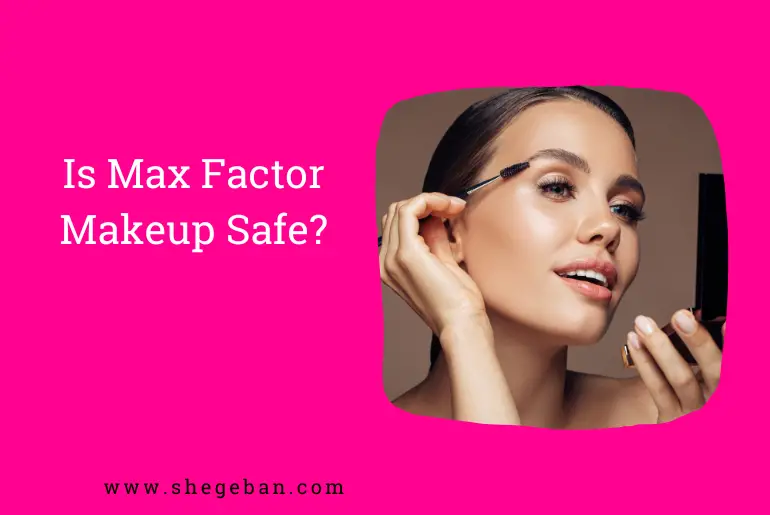Shea butter is known for its skin nourishing and moisturizing properties and has gained popularity in recent years as a natural alternative to synthetic skin care products. However, some claim using shea butter can make the skin darker, leaving many people wondering whether this is true or simply a myth.
No, shea butter does not make you darker. This is a common myth that has no scientific basis. In fact, shea butter has a slight sun protection factor (SPF) of around 6, which can help to protect the skin from the harmful effects of the sun and prevent further darkening.
Can Shea Butter Make You Darker?
There is a common myth that shea butter can make you darker. However, there is no scientific evidence to support this claim. Shea butter is a natural ingredient derived from the shea tree’s nuts. It is a rich source of fatty acids, vitamins, and antioxidants that help to nourish and moisturize the skin.

Shea butter is also known to have a slight sun protection factor (SPF) of around 6, which can help to protect the skin from the harmful effects of the sun and prevent further darkening. However, this does not mean that shea butter can make you darker.
Skin color is determined by genetics and the amount of melanin in the skin. Melanin is a pigment that gives the skin its color and protects it from the harmful effects of the sun. Shea butter contains no ingredients that can increase melanin production in the skin or change its natural color.
Some studies suggest that shea butter may have a slight skin-lightening effect. This is because shea butter contains compounds that inhibit melanin production in the skin, which may help reduce the appearance of hyperpigmentation or dark spots. However, this effect is mild and insignificant enough to make the skin visibly lighter.
10 Benefits of Shea Butter on the Skin
Shea butter is widely recognized for its many benefits for the skin. Here are some of the top benefits of shea butter on the skin:
1. Moisturizes the skin
Shea butter is rich in fatty acids and vitamins, which help to nourish and moisturize the skin. It forms a protective barrier on the skin’s surface, preventing moisture loss and keeping it soft and supple.
2. Soothes dry and irritated skin
Shea butter has anti-inflammatory properties that help soothe dry and irritated skin. It can also help to reduce redness and itchiness.
3. Protects the skin from the sun
Shea butter has a slight sun protection factor (SPF) of around 6, which can help to protect the skin from the harmful effects of the sun. However, it is important to note that shea butter is not a substitute for sunscreen and should be part of a comprehensive sun protection routine.
4. Reduces the appearance of fine lines and wrinkles
Shea butter contains antioxidants that help to protect the skin from free radical damage. This can help reduce the appearance of fine lines and wrinkles and improve the skin’s overall texture.
5. Improves skin tone and texture
Regular use of shea butter can help improve the skin’s overall tone and texture. It can also help to reduce the appearance of hyperpigmentation and dark spots.
6. Helps to heal skin conditions
Shea butter has anti-inflammatory and healing properties that can help treat various skin conditions, including eczema, psoriasis, and acne.
7. Treats acne and blemishes
Shea butter is rich in nutrients that help prevent inflammation and reduce redness. It contains vitamin A, which can help treat acne because it reduces oil production by the sebaceous glands. It also contains antioxidants that protect the skin from damage caused by free radicals and environmental pollution.
8. Reduces stretch marks
Shea butter is rich in vitamins A and E, essential for healthy skin cell growth. These vitamins help improve your body’s circulation and increase collagen production in your skin cells.
This helps reduce the appearance of stretch marks on your body by encouraging new collagen production in your existing skin cells. This process can take several weeks or months, depending on how long you’ve had stretch marks, but it will work if you give it time.
9. Works as a lip balm
Shea butter is an effective lip balm because it contains natural moisturizers that keep lips soft and supple all day. The vitamins A, D, E, and F help prevent dryness, chapping, and flaking of lips because they are easily absorbed by the skin cells on your lips for maximum hydration.
10. Reduce razor irritation and bumps
If you often shave or have sensitive skin, then you know how difficult it is to find a shaving cream that doesn’t irritate your skin after shaving. Shea butter has anti-inflammatory properties that reduce razor irritation and bumps on your face after shaving or waxing. It helps prevent ingrown hairs from forming by keeping the follicle open and clear. It also helps keep your skin soft and smooth after shaving!
How to Use Shea Butter Safely
It is important to use shea butter safely to avoid any potential side effects or allergic reactions. Here are some tips on how to use shea butter safely:
1. Choose high-quality, unrefined shea butter
Look for shea butter that is organic, unrefined, and minimally processed. This will ensure that the shea butter is pure and free from any additives or chemicals that could irritate the skin.
2. Patch test before use
Before using shea butter on your skin, perform a patch test on a small area to check for allergic reactions or sensitivity. Apply a small amount of shea butter to the inside of your elbow or wrist and wait 24 hours to see any redness, itching, or irritation.
3. Use shea butter sparingly
Shea butter is rich and thick, so it is important to use it sparingly. A little goes a long way, and using too much shea butter can clog pores and lead to breakouts.
4. Avoid using shea butter on acne-prone skin
While shea butter can benefit the skin, it is not recommended for use on acne-prone skin. Its rich and heavy texture can clog pores and lead to breakouts.
5. Use shea butter as part of a comprehensive skincare routine
Shea butter can be used in various ways, such as a moisturizer, body butter, or lip balm. It is best used in a comprehensive skincare routine that includes cleansing, exfoliating, and sun protection.
6. Store shea butter properly
Shea butter should be stored in a cool, dry place away from direct sunlight. Exposure to heat and light can cause the shea butter to degrade and lose its beneficial properties.
7. Do not use shea butter as a substitute for sunscreen
While shea butter has a slight sun protection factor (SPF), it should not be used as a substitute for sunscreen. Always use broad-spectrum sunscreen with an SPF of 30 or higher to protect your skin from the harmful effects of the sun.
Does shea butter lighten skin?
Shea butter is not known to have skin-lightening properties. It is a natural ingredient rich in fatty acids and vitamins, which help nourish, moisturize, and soothe the skin. While shea butter may help improve the skin's overall health and appearance, it is not a skin-lightening agent.
Does shea butter change your skin color?
No, shea butter does not change your skin color. This is a common myth that has no scientific basis. Shea butter is a natural ingredient rich in fatty acids and vitamins, which help nourish, moisturize, and soothe the skin. While it may help to improve the overall health and appearance of the skin, it does not change the natural color of your skin.
How long does it take shea butter to brighten skin?
Shea butter is not known to have skin-brightening properties. While it may help to improve the overall health and appearance of the skin, it is not specifically designed to brighten the skin. The time it takes for shea butter to have visible effects on the skin depends on various factors, including the individual's skin type, skin concerns, and how often and how much shea butter is applied.
Does shea butter lighten dark areas?
Shea butter is not specifically known to lighten dark areas of the skin. However, shea butter is a natural ingredient rich in fatty acids and vitamins, which can help nourish, moisturize, and soothe the skin. Regular application of shea butter may improve the overall health and appearance of the skin, including dark areas.
Conclusion
No scientific evidence supports the claim that shea butter can make you darker. In fact, shea butter has been shown to have a slight sun protection factor (SPF) of around 6, which can help to protect the skin from the harmful effects of the sun and prevent further darkening.
Also, shea butter is a versatile and beneficial ingredient for skin care, with a range of moisturizing, nourishing, and healing properties.
Overall, shea butter is a safe and effective ingredient for skin care that can help to improve the overall health and appearance of the skin. So, if you haven’t already, try shea butter and experience its many benefits for yourself!





